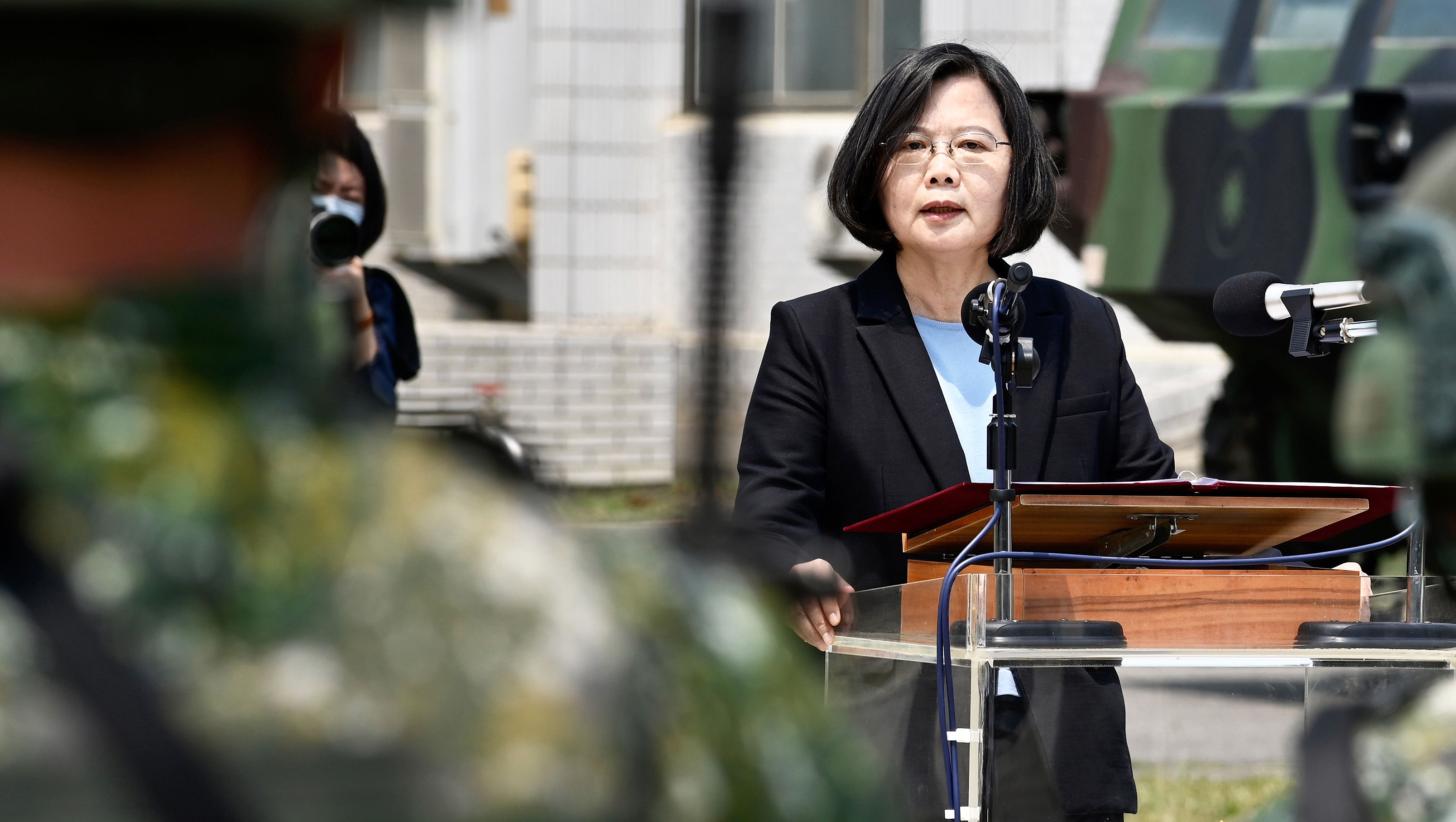How coronavirus has bolstered Taiwan’s independence movement
Taipei’s swift response to pandemic has saved lives - and boosted support to challenge China

A free daily email with the biggest news stories of the day – and the best features from TheWeek.com
You are now subscribed
Your newsletter sign-up was successful
Taiwan’s president struck a defiant tone this week as she was sworn in for a second term.
“Although we were once isolated in the world, we have always persisted in values of democracy and freedom no matter the challenges ahead of us,” said Tsai Ing-wen [pictured above], who secured a landslide victory in elections in January.
Her country would “not accept” any attempt by China to “downgrade Taiwan and undermine the cross-strait status quo”, she added.
The Week
Escape your echo chamber. Get the facts behind the news, plus analysis from multiple perspectives.

Sign up for The Week's Free Newsletters
From our morning news briefing to a weekly Good News Newsletter, get the best of The Week delivered directly to your inbox.
From our morning news briefing to a weekly Good News Newsletter, get the best of The Week delivered directly to your inbox.
Taiwan has “for all practical purposes been independent since 1950”, says the BBC, but China regards the island “as a rebel region that must be reunited with the mainland - by force if necessary”.
Despite this looming threat, Tsai’s confidence reflects growing national self-belief. “Taiwan’s citizens increasingly identify themselves as Taiwanese, rather than part of China”, a trend that appears to have been accelerated by the coronavirus crisis, reports Foreign Policy.
Amid “criticism of slow or inappropriate responses” to Covid-19 by governments across the world, Taiwan “may emerge from this pandemic stronger than before”, says Quartz.
–––––––––––––––––––––––––––––––For a round-up of the most important stories from around the world - and a concise, refreshing and balanced take on the week’s news agenda - try The Week magazine. Start your trial subscription today –––––––––––––––––––––––––––––––
A free daily email with the biggest news stories of the day – and the best features from TheWeek.com
As The Guardian notes, Tsai’s government introduced “monitoring and screening incoming travellers from as early as 31 December, enacting travel restrictions, mandatory quarantine testing and phone tracking. It also banned the export of face masks to ensure domestic supply.”
This strategy has seen just seven Covid-19 deaths in a country with a population of almost 24 million.
Viral diplomacy
Alongside its public health response, Taiwan has been running a diplomatic campaign for international recognition, particularly by the World Health Organization (WHO).
China has long vetoed full WHO membership for Taiwan, and after Tsai’s pro-independence party first took power in 2016, Beijing ended an arrangement that allowed the island’s officials to take part in public health meetings as observers.
As a result, reports CNBC, “Taiwan says it has been unable to get timely information and that Taiwanese lives have been put at risk” - a claim denied by the UN health agency.
However, much of the rest of the world has become increasingly sympathetic to Taiwan as the coronavirus pandemic unfolds. Donald Trump’s administration, a ready critic of China, has lent support to Taipei both in negotiations with the UN and on Twitter.
The UK, EU, Japan, Australia and New Zealand have also called for Taiwan to be allowed to join WHO.
“There’s absolutely no doubt that this has been a strategic opportunity for Taiwan,” J. Michael Cole, a Taiwan expert and senior fellow at Canada’s Macdonald-Laurier Institute, told Quartz. “Taipei has seized it.”
In response, China has accused Taiwan of “unscrupulously using the virus to seek independence” and “venomously attacking” WHO.
The international health agency, for its part, says it will not extend an invitation. Instead, WHO officials have expressed frustration that Taiwan has “introduced politics into a public health emergency”, says Quartz.
Even so, the moral victory is Taiwan’s, according to Kharis Templeman, a political scientist at Stanford University.
“I can’t think of another issue with such global resonance that has broken so favourably for Taiwan, and so negatively [for China], since perhaps the Tiananmen Square massacre,” she told Bloomberg.
–––––––––––––––––––––––––––––––For a round-up of the most important stories from around the world - and a concise, refreshing and balanced take on the week’s news agenda - try The Week magazine. Start your trial subscription today –––––––––––––––––––––––––––––––